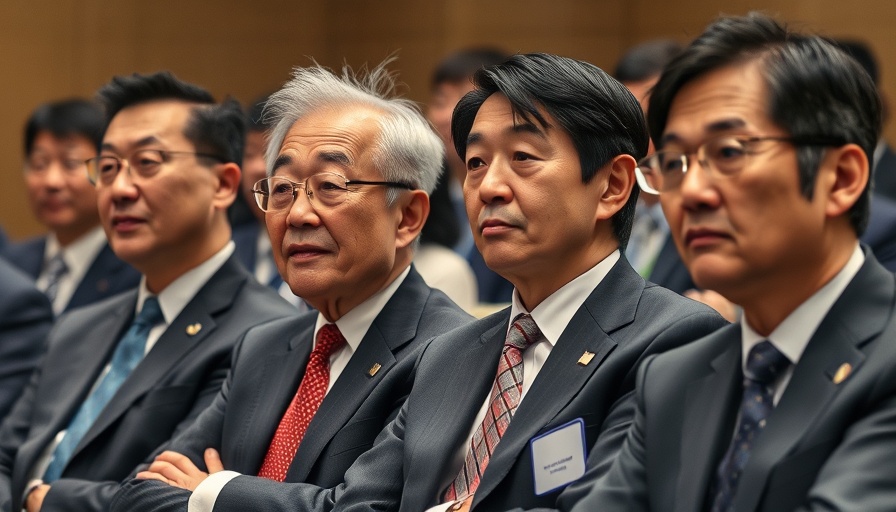
Japan's Renewed Focus on Africa: The TICAD Context
As the world gears up for the ninth Tokyo International Conference on African Development (TICAD IX) this August in Yokohama, Japan has signaled a profound commitment to Africa by deploying a dedicated task force ahead of the extravaganza. Directed by Japanese Prime Minister Shigeru Ishiba, this initiative aims to foster enhanced cooperation between Japan and African nations, addressing critical challenges such as economic growth, infrastructure development, and regional stability.
High Stakes for African Development
The TICAD platform has historically served as a catalyst for dialogue and proactive strategies on the continent, focusing on paramount issues from decolonization efforts to modern economic diplomacy. At this year's conference, discussions will likely center around exploring sustainable development pathways while respecting African sovereignty and promoting Afrocentrism in global economic narratives.
A Task Force with Purpose
Deploying teams from Japan's foreign and trade ministries, Ishiba's task force will prioritize critical areas such as trade, investment, and technology transfer. The intention is to prepare actionable strategies that encourage partnerships with African nations, assisting them in tackling pervasive issues like corruption, governance, and infrastructure deficits. Innovations in the digital sphere, especially fintech, mobile money solutions, and artificial intelligence, are expected to take center stage.
The Role of the Diaspora
Another important aspect that will be considered is the engagement of the African diaspora—a crucial player in fostering development through remittances and entrepreneurship. Leveraging the knowledge and resources of the diaspora not only revives local economies but also strengthens cultural ties across continents. This exploration is pertinent as populations grapple with modernity and traditional cultural legacies.
The Need for Youth Empowerment
While addressing economic growth, attention must also be drawn towards youth empowerment and employment opportunities. With a significant proportion of Africa’s population being under 30, discussions at TICAD IX will delve into connecting youth talent with significant job markets. This could be vital for Africa to combat unemployment and spur innovation across various sectors, from agriculture to technology.
Importance of Sustainable Practices
Climate change, food security, and renewable energy practices are other pivotal themes that will be highlighted. As Africa faces increased environmental challenges, sharing Japan's advances in sustainability can assist nations develop frameworks that promote conservation alongside economic progress. Discussions on desertification and the impacts of renewable energy initiatives will showcase Africa's potential to lead in sustainable practices.
Conclusion: Engaging with the African Reality
As the TICAD conference approaches, the collaboration between Japan and Africa represents a forward-looking strategy that not only addresses developmental concerns but also acknowledges the cultural heritage of African nations. Japan's task force deployment signals an intention to foster meaningful interactions that support African sovereignty in addressing its unique challenges. This engagement could redefine Japan's role in promoting peace, security, and prosperity on the continent, drawing lessons from historical contexts and future aspirations.
 Add Row
Add Row  Add
Add 




Write A Comment